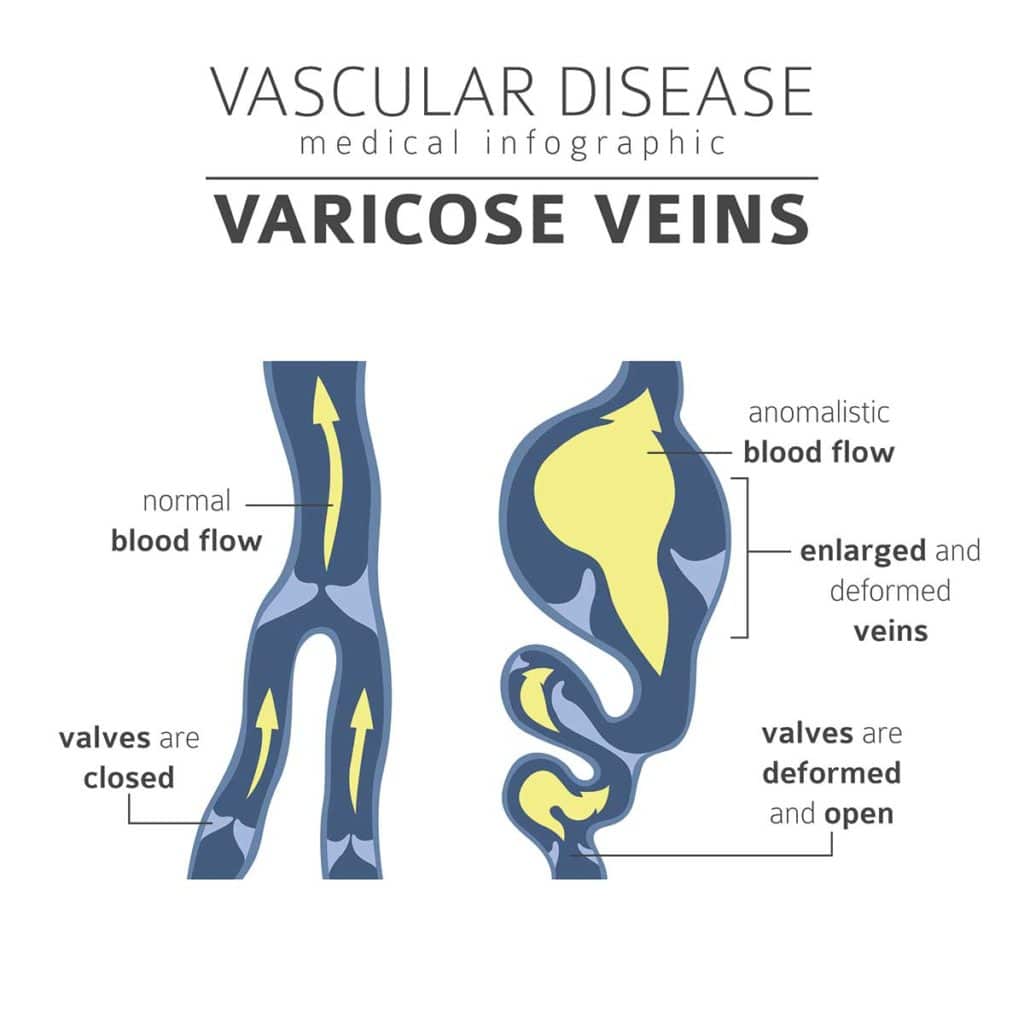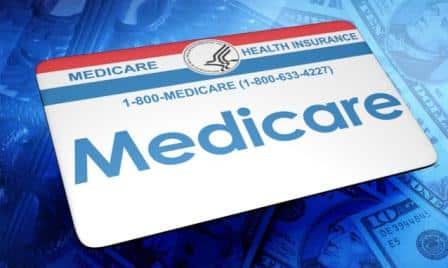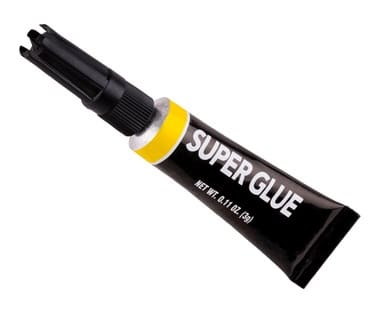
DVT and Varicose Veins during Pregnancy
DVT and Varicose Veins during Pregnancy
Pregnancy is a risk factor for the development of a blood clots with an incidence that is 4 to 50 times higher compared to non-pregnant women. Increased risk for development of a blood clot is highest in the postpartum period, with the most common occurrence of clot formation in left lower extremity and pelvis.
A blood clot, or venous thromboembolis (VTE) can manifest during pregnancy as a lower extremity deep vein blood clot, or it can break off from the lower extremities and travel to the lung, which is called a pulmonary embolus (PE). Pulmonary embolus is the seventh leading cause of maternal mortality or 9 percent of maternal deaths. Therefore, early detection of DVT during pregnancy is critical to preventing deaths caused by PE.
Pregnancy and the postpartum period are marked by the increased presence of components which contribute to the increased risk of DVT in pregnancy. Venous stasis of the lower extremities occurs during pregnancy because of two factors: increased blood volume, and hormonal changes to the lining of the veins. During pregnancy, lower extremity veins are subject to increased blood volume. Increased blood volume pared with hormonally induced dilation of the lower extremity veins leads to pooling of blood and causes incompetence in the valves. It is the pooling of blood in the veins that causes clots to form.
[read more="Click here to Read More" less="Read Less"]
People sometimes form clots because they have been sitting for too long. If you travel on long airplane flight and are pregnant, you are at increased risk of blood clots. Here are some things you can do to help prevent a clots: walk around every few hours, do not smoke, wear comfortable clothes, drink plenty of water, wear compression stockings, shift position in your seat frequently and move your legs and feet often.
Although venous intervention is not recommended during pregnancy, if your symptoms are concerning to you, an ultrasound can be performed for evaluation of DVT or venous insufficiency without harm or risk to you or your baby.[/read]
Q&A: Veins along my inner thigh have turned brown after EVLT. Is this normal?
Question & Answer 5 weeks post-EVLT, veins along my inner thigh have turned brown, and one spot is slightly red. Is this normal? Question: It’s my 1st week in Vietnam and I’m here for an additional two-and-a-half weeks. My doctor closed up a vein in my groin area 5 weeks ago. I’ve just noticed on…
Read MoreDoes Phlebitis Cause Venous Insufficiency or is it Vice-Versa?
Question: I am 20 years old with a history of undiagnosed autoimmune disease, which is currently in an acute flare. After suffering from a case of phlebitis in greater saphenous vein of the right leg for two months, I was just recently diagnosed with venous insufficiency in both the greater and smaller saphenous veins of…
Read More¿Qué cubre el seguro, estoy en Medicare con un suplemento.
Q & A Pregunta: ¿Qué cubre el seguro, estoy en Medicare con un suplemento. Respuesta: Medicare con un suplemento cubre las visitas a la oficina, los ultrasonidos y las intervenciones necesarias, típicamente al 100%. Por lo general, no hay un gasto de bolsillo asociado con el tratamiento en la oficina.
Read MoreWhat does insurance cover, I am on Medicare with a supplement.
Q & A Question: What do insurance cover, I am on Medicare with a supplement. Answer: Medicare with a supplement covers the office visits, necessary ultrasounds and interventions, typically at 100%. Usually there is not an out of pocket expense associated with in-office treatment.
Read More¿Cuál es el costo promedio si tiene varices en una pierna y arañas vasculares en la otra?
Q & A Pregunta: ¿Cuál es el costo promedio si tiene varices en una pierna y arañas vasculares en la otra? Respuesta: la mayoría del tratamiento de las venas varicosas, si es médicamente necesario, está cubierto por el seguro. Los costes del tratamiento de la vena de la araña varían dependiendo de la cantidad de…
Read MoreWhat is the average cost if you have varicose veins in one leg and spider veins in the other?
Q & A Question: What is the average cost if you have varicose veins in one leg and spider veins in the other? Answer: Most varicose vein treatment, if medically necessary, is covered by insurance. Spider vein treatment costs vary depending on the amount of veins present, if the insurance will cover them (medically necessary) and…
Read MorePegamento (pegamento del cianocrilato) para el tratamiento de la vena… ¿puedes hacer eso? ¡Sí!
VenaSeal El último tratamiento para las varices puede parecer que es directamente de una película de ciencia ficción, pero la sustancia utilizada para cerrar las venas anormales, pegamento del cianocrilato, se ha utilizado en procedimientos médicos y cirugías por décadas. ¡ Créalo o no, el pegamento del cianocrilato se ha utilizado los procedimientos desde 1949,…
Read MoreGlue (Cyanoacrylate Adhesive) for vein treatment…can you do that? YES!
VenaSeal The latest treatment for varicose veins may seem like it is straight out of a science fiction movie, but the substance used to close off abnormal veins, cyanoacrylate adhesive, has been used in medical procedures and surgeries for decades. Believe it or not, cyanoacrylate adhesive has been used procedures since 1949, and other types…
Read MoreConsejos de salud para ayudar a prevenir varices y arañas
Algunos buenos consejos generales fueron recientemente compartidos por el Consejo de salud de Estados Unidos sobre varices y arañas vasculares. Hay algunos puntos adicionales que deben ser considerados cuando se discute la salud venosa. Con respecto a lo que hay que recordar; es importante mantener una hidratación adecuada. Al hacerlo, se fomentará un flujo sanguíneo…
Read MoreHealth Tips to Help Prevent Varicose and Spider Veins
Some good general advice was recently shared by U.S. News Health Tip regarding varicose and spider veins. There are a few additional points that should be considered when discussing venous health. Regarding do’s and don’ts to remember; it is important to maintain adequate hydration. In doing so, one will encourage healthy adequate blood flow thereby…
Read More






